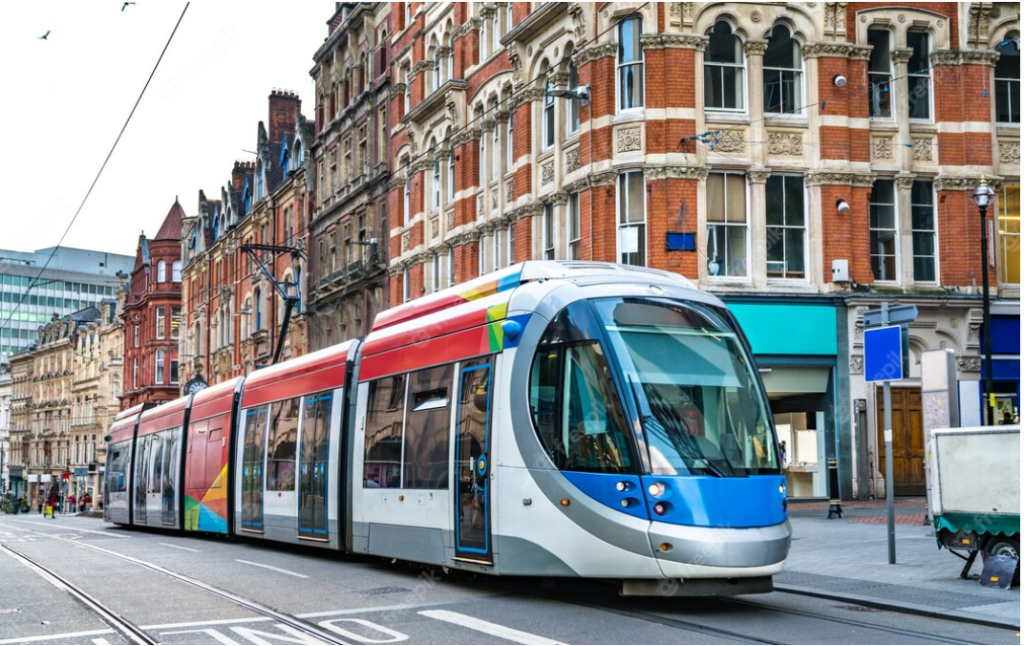
Train strikes: Every Things You Have To Know| Alternative Routine Train Strikes
England is bracing for a new wave of national rail strikes that are expected to impact family travel arrangements during the latter part of the ongoing half-term holidays at most schools. The strikes, scheduled until 4th June, have been called by both major rail unions, potentially causing disruptions across various train operators.
England is set to face a fresh bout of national rail strikes as both the Aslef and RMT unions have called for walk-outs during the ongoing half-term break, lasting until 4th June. Train drivers affiliated with Aslef are planning to halt operations at more than a dozen operators, including key long-distance and commuter rail firms, on Wednesday, 31st May, and Saturday, 3rd June. Similarly, the RMT has announced a strike involving members working at 14 train operators exclusively on Friday, 2nd June. These strikes are expected to disrupt services starting from late on Tuesday, 30th May, until the morning of Sunday, 4th June.

The timing of the strikes coincides with significant events, such as the FA Cup Final between Manchester United and Manchester City, which is slated to take place at Wembley in northwest London on 3rd June. The match typically attracts tens of thousands of fans who rely on rail travel to attend. Additionally, the strikes are anticipated to affect racegoers heading to the Epsom Derby.
These rail strikes add to the woes of train passengers who have already faced numerous disruptions due to pay disputes, job security concerns, and working arrangement disagreements since June 2022. With frequent stoppages causing significant inconvenience and hampering travel planning, the strikes have affected tens of millions of passengers.
Who is striking and when?
Aslef has instructed all its train driver members working for 16 train operators to go on strike on Wednesday, 31st May, and Saturday, 3rd June. The affected train firms, contracted by the Department for Transport, include leading intercity operators such as Avanti West Coast, CrossCountry, East Midlands Railway, Great Western Railway, LNER, and TransPennine Express. The strikes will also impact a majority of London commuter operators like Greater Anglia, GTR (Gatwick Express, Great Northern, Southern, Thameslink), Southeastern, and South Western Railway.
Operators focusing on the Midlands and north of England, including Chiltern Railways, Northern Trains, and West Midlands Trains, will also be affected. Additionally, there will be a ban on “non-contractual overtime” on Thursday, 1st June.
The RMT union has called its members to strike on Friday, 2nd June, targeting the same train operators. In addition, c2c, which operates from the City of London to south Essex, will also be involved in the strike action.
What will be the impact?
While signaling staff working for Network Rail, responsible for at least half of the rail system shutdowns in previous strikes, have now settled and their participation is not expected, thousands of trains will still face cancellations, causing significant disruptions for millions of passengers. On operating lines, trains will commence later and conclude earlier than usual.

The impact of the drivers’ and RMT walk-outs will differ. For some operators like Avanti West Coast, TransPennine Express, and Southeastern, all trains will be canceled. Others will operate a limited service on core routes. For instance, GWR will provide a basic service between London Paddington, Bristol Temple Meads, and Cardiff Central. LNER plans to run a reduced service on the East Coast mainline between London and Edinburgh, although with significantly reduced hours.
The RMT strike is expected to have a comparatively lesser impact. GWR is likely to operate a more extensive timetable, including services to and from Exeter and Plymouth. Avanti West Coast will run a basic service, offering one train per hour from Birmingham, Liverpool, Manchester, and Glasgow to London Euston. LNER aims to maintain up to 40 percent of its normal services on the East Coast main line, primarily focusing on the London King’s Cross-York-Newcastle-Edinburgh route.
Fortunately, most services in Scotland and Wales will operate normally as ScotRail and Transport for Wales are not involved in the disputes with Aslef and the RMT. However, some trains on shared routes with English operators, such as Aberdeen-Dundee-Edinburgh and Swansea-Cardiff-Newport, may experience higher than usual passenger volumes.
Certain train operators will remain unaffected by the strikes, ensuring normal services for passengers. These include Caledonian Sleeper, Grand Central, Heathrow Express, Hull Trains, London Overground, Lumo, and Merseyrail.
The drivers’ overtime ban is expected to particularly impact long-distance train operators like Avanti West Coast and TransPennine Express. Moreover, there will be cancellations of evening services preceding the strikes and early morning trains following the walk-outs.
Will Eurostar be affected?
Eurostar services will not be directly affected by the strikes. However, connections to and from the train operator’s main hub at London St Pancras International might encounter difficulties due to walk-outs by union members working for East Midlands Railway, Southeastern, and Thameslink—three domestic train operators serving the station.
Reasons for Aslef’s industrial action
Mick Whelan, General Secretary of Aslef, expressed reluctance towards the strikes, citing their impact on passengers, many of whom have familial connections with the rail industry. Whelan emphasized the need for investing in rail infrastructure for the future of the country.
He attributed the strikes to the employers’ unwillingness to address issues related to pay, inflation, and the lack of salary increases for employees over the past four years. Whelan claimed that the companies involved were failing passengers and taxpayers, rejecting proposals for modernizing the railway system and improving efficiency.
The Rail Delivery Group, representing train operators, expressed disappointment over the strikes, deeming them unnecessary and adding more pressure to an industry already facing financial difficulties. They revealed that a revised and fair offer, including an 8 percent pay rise over two years, had been proposed to the unions. The offer aimed to introduce practical improvements to enhance punctuality and customer satisfaction. Regrettably, the offer was rejected.
Reasons for the RMT’s strike
The RMT union states that it cannot accept the pay proposals put forth by the Rail Delivery Group (RDG), which represents train operators. The union’s General Secretary, Mick Lynch, emphasized that the government was preventing the RDG from presenting an improved offer. Lynch highlighted the determination of RMT members, who recently provided a new six-month strike mandate, to secure a negotiated settlement regarding jobs, pay, and working conditions. The RMT calls for the government to allow the RDG to present an acceptable offer that can be put to a referendum of its members.
The Rail Delivery Group, in response, reiterated its commitment to the dispute resolution proposal agreed upon with the RMT’s negotiating team. They expressed disappointment over the continued strike action, stating that it deprived the RMT members of the opportunity to vote on their own offer. The RDG maintained openness to engage in national-level talks, emphasizing the importance of securing a pay rise for railway employees and ensuring the long-term future of the industry, vital for the country’s economy.
Government’s perspective The final settlement, which will largely be funded by taxpayers, needs to be approved by the government.
Transport Secretary Mark Harper stated that passengers have endured RMT’s strike actions for nearly a year, and despite having a best and final offer similar to the one accepted by Network Rail members, the RMT executive insists on further strikes that would cause their members to lose more pay. Harper expressed disappointment over the strikes coinciding with the Eurovision final and the FA Cup final, affecting those planning to attend these events.
He emphasized the government’s efforts to resolve the dispute and the fair offer made to improve pay and introduce necessary improvements to the railway system.
The likelihood of the strikes being called off seems unlikely given the deep-rooted animosity between the parties involved.
If you have a ticket booked for one of the strike days, you have options available to you. Passengers holding Advance, Anytime, or Off-Peak tickets can have their tickets refunded without any fee if the train they booked is canceled, delayed, or rescheduled. Train operators are expected to offer flexibility to travel on non-strike days. Season ticket holders who choose not to travel during the strike dates can claim compensation through Delay Repay.
As an alternative to rail travel, long-distance coach operators such as National Express, Megabus, and Flixbus will continue to operate, although seats may be limited and fares may increase. National Express, for example, offers return tickets from Manchester to Wembley Stadium for the FA Cup Final at £54.
Total Break down of services that will be affected by industrial action this week?
Here is a list of train operators affected by the strikes and the corresponding changes to their services:

Avanti West Coast: No services on any routes on Wednesday 31 May or Saturday 3 June. Fewer trains running on reduced hours on Friday 2 June.
Chiltern Railways: No trains on any routes on Wednesday 31 May or Saturday 3 June. Very limited service on Friday 2 June, with emphasis on “essential travel only.”
C2c: Most trains will not stop at Limehouse on Friday 2 June.
CrossCountry: No trains on Wednesday 31 May or Saturday 3 June. Limited services on Friday 2 June. Normal services on Thursday 1 and Sunday 4 June.
East Midlands Railway: No trains on any routes on Wednesday 31 May or Saturday 3 June. Significantly reduced service between 7:30 am and 6:30 pm on Friday 2 June. Possible short notice cancellations on Thursday 1 June, passengers advised to check before traveling.
Great Northern: No trains running on Wednesday 31 May or Saturday 3 June. Overtime ban may affect some services on Thursday 1 June. Limited service with reduced hours on Friday 2 June. Fewer services before 7 am on Sunday 4 June due to strike impact.
GWR: Extremely limited services between 7:30 am and 6:30 pm on Wednesday 31 May, Friday 2 June, and Saturday 3 June. Minor changes to late-night services on Thursday 1 June. Minor changes to early-morning services on Sunday 4 June.
Greater Anglia: Reduced service from 7 am onwards on Wednesday 31 May, with most routes having no trains at all. Some services canceled due to short notice of strike action on Thursday 1 June.
Trains running only between 7 am and 11 pm on Friday 2 June, with reduced frequency. Reduced service on most routes on Saturday 3 June, and no service between Cambridge and Liverpool Street. Morning disruption expected on Sunday 4 June.
LNER: Reduced timetable with no trains running beyond Edinburgh on Wednesday 31 May and Saturday 3 June. Minor changes to timetable on Thursday 1 and Sunday 4 June. Reduced timetable on Saturday 3 June.
London Northwestern: No trains on any routes on Wednesday 31 May and Saturday 3 June. Limited services on a limited number of routes on Friday 2 June. Potential on-the-day cancellations or timetable changes on Thursday 1 June.
Northern: No trains on Wednesday 31 May or Saturday 3 June. Limited service on Friday 2 June, with some stations closed and no replacement bus services.
South Western Railway: Reduced services on Wednesday 31 May and Saturday 3 June, with no trains on the Island Line. Possible short notice delays and cancellations on Thursday 1 June
due to an overtime ban. Significant reduction of services with the closure of large parts of the network on Friday 2 June.
Southeastern: No trains running with no replacement buses on Wednesday 31 May and Saturday 3 June. Normal service intended on Thursday 1 June. Only 58 out of 180 stations open on Friday 2 June, with no replacement buses for closed stations.
Southern: No trains running on Wednesday 31 May or Saturday 3 June. Overtime ban may affect some services on Thursday 1 June. Limited service with reduced hours on Friday 2 June. Fewer services before 7 am on Sunday 4 June due to strike impact.
Thameslink: No trains running on Wednesday 31 May or Saturday 3 June. Overtime ban may affect some services on Thursday 1 June. Limited service with reduced hours on Friday 2 June. Fewer services before 7 am on Sunday 4 June due to strike impact.
TransPennine Express: No trains on any route on Wednesday 31 May or Saturday 3 June. Some services canceled or altered on Thursday 1 June and Friday 2 June.
West Midlands: No trains on Wednesday 31 May or Saturday 3 June. On-the-day cancellations and alterations possible due to overtime ban on Thursday 1 June. Limited services on Friday 2 June.
Heathrow Express: Only one train per hour between 7 am and 7 pm on Wednesday 31 May. No trains at all on Saturday 3 June.
Stansted Express: Trains approximately every 40 minutes between 4:40 am and 12:30 am on Wednesday 31 May. Some services not running on Thursday 1 June. Only two trains per hour between 7:11 am and 12:30 am on Friday 2 June. Services approximately every 30 minutes between 4:40 am and 12:30 am on Saturday 3 June.
Gatwick Express: No Gatwick Express trains on Wednesday 31 May or Saturday 3 June. Travelers going to Gatwick on Friday 2 June can use Southern or Thameslink trains instead.
Please note that these changes to train services are based on the ongoing strikes and may be subject to further adjustments. It is recommended to check for updates and plan accordingly before your journey.
Additionally, it is advisable to explore alternative modes of transportation, such as carpooling or using ride-sharing services, if feasible. Planning your journey in advance and allowing for extra travel time will help mitigate any disruptions caused by the strikes.
Passengers are encouraged to stay informed about the latest developments through official announcements from the train operators, as well as updates from reliable news sources. This will enable you to adjust your travel plans accordingly and make informed decisions.
The ongoing rail strikes highlight the challenges faced by the rail industry, including issues related to pay, job security, and working conditions. It is hoped that a resolution can be reached through negotiations between the unions and train operators, ultimately ensuring a more stable and efficient railway system for both passengers and employees.
However, with the strikes affecting significant travel periods, such as the second part of the half-term holidays, it is important to remain prepared for potential disruptions and explore alternative travel options whenever possible.




